



On June 16, 2025, INRAE’s digital heritage library, Agate, was awarded the Bronze “Culture Libre” label by Wikimédia France.
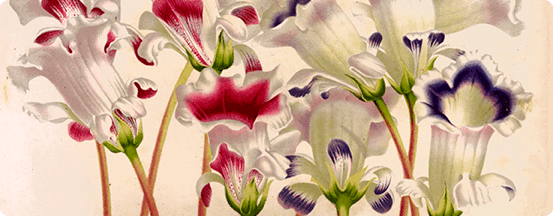
Within the collections of Villa Thuret, some books are beautifully flowered. Here's what you need to make a beautiful bouquet this june.
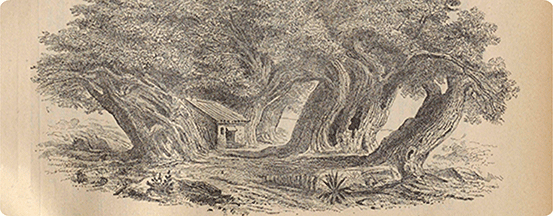
Agate shares its current favorite discovery. Today, let’s travel together to the slopes of Mount Etna in Italy to meet a remarkable natural giant: the Hundred Horse Chestnut Tree.

Agate presents its current favorite.
New titles will soon join Agate's collections, books, images and magazines. One of them, C. Arnould's "Calendar of the Beekeeper" published in 1908, offers beautiful and humorous illustrations. Our favourite is this cycling bee, a mode of transport so fashionable at the beginning of the 20th century when this book was published.
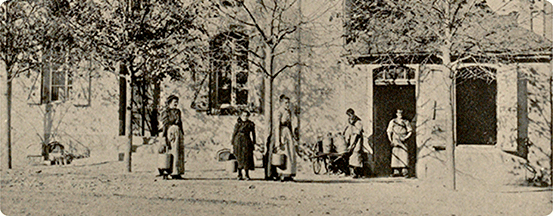
At the end of the 19th century, the policy of restoring land in the mountains imposes the reforestation of traditional rangelands, which entails the expropriation of peasants and prohibits them from grazing their sheep and goats. Faced with this unfavourable situation for mountain dwellers, some foresters encourage them to develop cattle rearing, which enables them to produce butter and cheese, processed products that provide a better income.
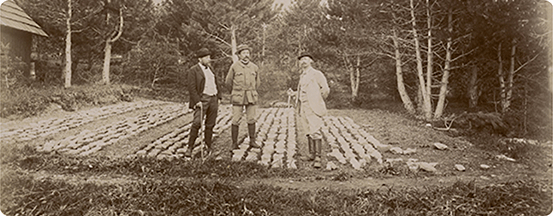
Starting from 1860, but especially after 1882, reforesting entire areas of the Alps or Pyrenees becomes a national policy, implemented by the mountain land restoration services (RTM). The goal is to reforest in order to stabilize the land and silence the torrents. Reforestation involves selecting species suited to the altitudes and conditions of the mountains. It also requires organizing production in "flying nurseries" or in valleys for the most suitable tree species.
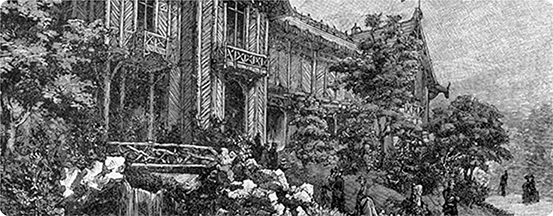
The history of the mountain land restoration (abbreviated RTM in French) services has been strongly marked by a few men with assertive characters and remarkable talents: Eugène de Gayffier was the driving force behind the use of photography in RTM not only to document the works, but also to argue for the need to carry them out.
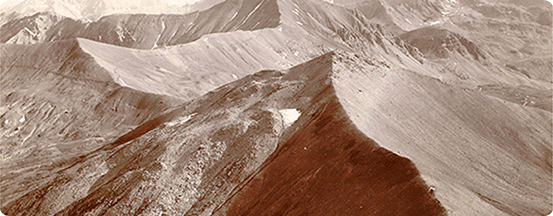
Agate presents its current favorite.
Let’s explore in images a stunning ridgeline in the Mercantour (Alpes-de-Haute-Provence). Through this photograph, part of a documentary series on the French Alps, a wild and unspoiled landscape unfolds, where light and terrain shape a timeless scene. A suspended moment, capturing the vision of Félix Briot (1845-1926), inspector of Water and Forests, and author of several studies and articles on mountain regions.
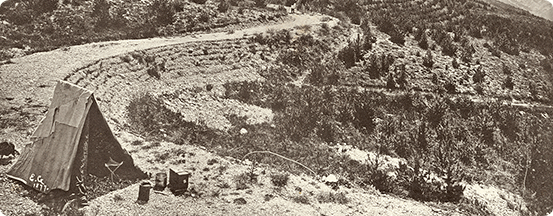
Agate presents its current favorite.
Here we are in 1877, in the Basses-Alpes, during the great mountain reforestation efforts. Through the lens of Eugène de Gayffier, a solitary tent stands watch over the freshly planted pine trees, a testament to the hard work of foresters striving to bring new life to these fragile lands.
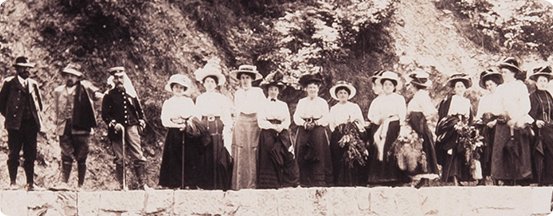
In the 19th century, the idea of reforesting to prevent flooding in the mountains needs to be disseminated and defended against the inhabitants who use the pastures. A major propaganda effort is therefore put in place, using a profession that is becoming established everywhere: schoolteachers.
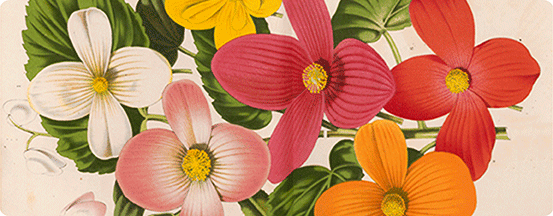
Agate invites you to start the year 2025 in color with tuberous begonias, taken from the Flore des serres et des jardins d'Europe (in French), Flora of the Greenhouses and Gardens of Europe, published by the famous horticulturist Louis Van Houtte in the mid-19th century.
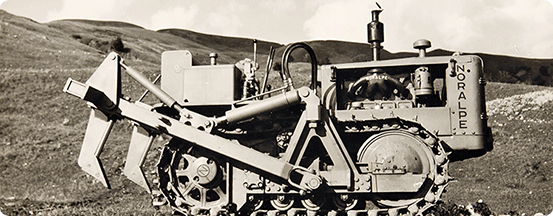
Agate presents its current favorite.
Within our collections, numerous illustrations or photographs deserve to be exhibited for their aesthetic quality or originality. Today, let's discover an original tractor from the 1960s, used for land restoration in the mountains.
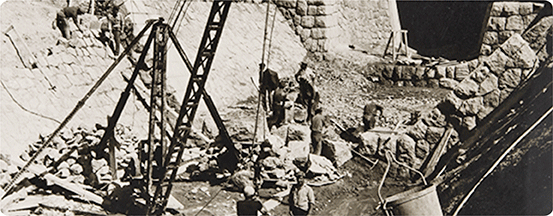
The civil engineering works described here often, but not exclusively, concern the alluvial cone, i.e. the hill formed by the deposits of the torrent as it flows into the valley. This is often where homes and infrastructure are located. These structures provide direct and immediate protection for people and their property and complement the work carried out in the reception basin.
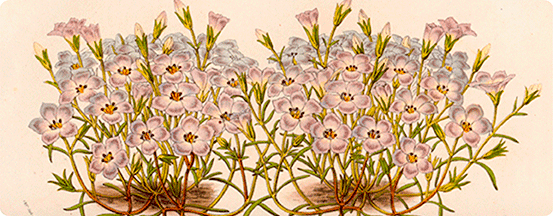
To promote the development of his horticultural business, Louis Van Houtte published some very classic catalogues. But he is also known for creating an extraordinary magazine: “La Flore des serres et des jardins d'Europe” (the flora of the greenhouses and gardens of Europe). This magazine, the first volume of which was published in French and English in 1845, was an aesthetic, botanical and human adventure.
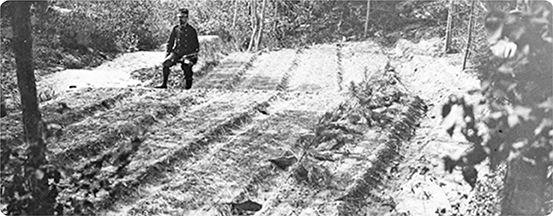
Since the 1860s, government departments have been working to secure natural and human habitats threatened by erosion and mountain torrents. Civil engineering and environemental engineering techniques are used to stabilise banks and reduce the slope of torrents.
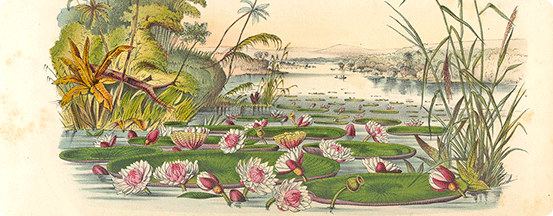
Agate presents its current favorite.
Within our collections, numerous illustrations or photographs deserve to be exhibited for their aesthetic quality or originality. Today, let's discover Victoria Regia, a giant of South American river vegetation in the 18th century.
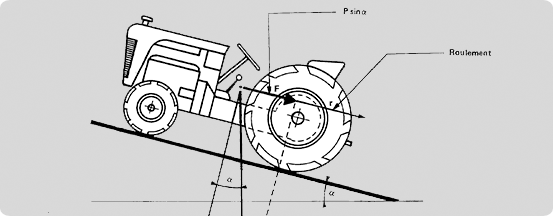
Agate presents its current favorite.
Within our collections, numerous illustrations or photographs deserve to be exhibited for their aesthetic quality or originality. Today, let's take a lesson in physics with a drawing illustrating the effort required to move a tractor alone on sloping ground.

Agate presents its current favorite.
Within our collections, numerous illustrations or photographs deserve to be exhibited for their aesthetic quality or originality. Today, Colchicum autumnale, the beautiful poisoner...

A plant enthusiast, Louis Van Houtte set up a major horticultural business in Gentbrugge-lez-Gand, Belgium, in the middle of the 19th century, to which he added a school of European renown. His garden, his varietal creations and his trade in plants and seeds were a must for enthusiasts.
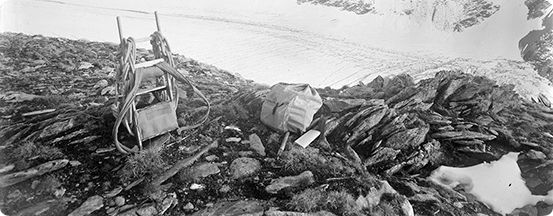
Agate presents its current favorite.
Within our collections, numerous illustrations or photographs deserve to be exhibited for their aesthetic quality or originality. Today, we are climbing the Tré-la-tête glacier.
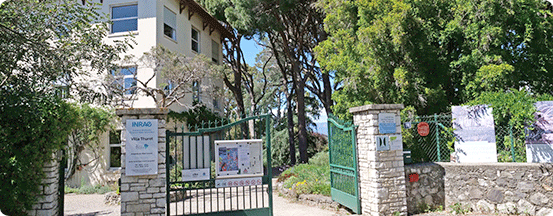
On Cap d'Antibes, the villa of a scholar with a passion for botanical experiments is home to an acclimatisation garden with a remarkable variety of species. In addition to his research into algae, Gustave Thuret founded one of the first botanical and acclimatisation gardens on the Côte d'Azur. He amassed a rich library, whose early titles on flora, fungi, trees...
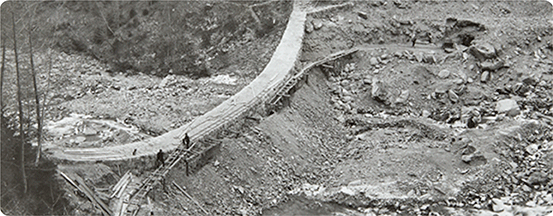
Since the 1860s, government departments have been working to secure natural and human habitats threatened by erosion and mountain torrents. Civil engineering techniques are deployed to stabilise torrent beds and consolidate the banks.
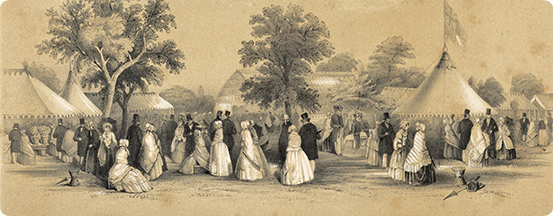
Agate presents its current favorite.
Within our collections, numerous illustrations or photographs deserve to be exhibited for their aesthetic quality or originality. Today, take a trip back to the 19th century in the gardens of Chiswick to visit the London Horticultural Society's exhibition.
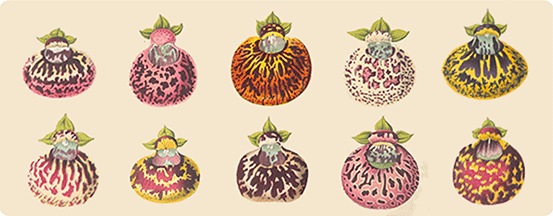
Agate presents its current favorite.
Within our collections, numerous illustrations or photographs deserve to be exhibited for their aesthetic quality or originality.Today, an illustration of Calceolaria, introduced by horticulturist Louis Van Houtte in 1843.
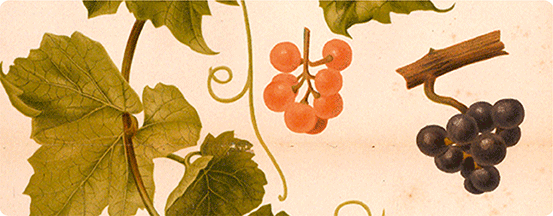
Almost one hundred and fifty years ago, in the midst of the phylloxera crisis, Pierre Viala identified a new species of vine across the Atlantic, Vitis berlandieri, which helped save the French vineyards from certain death.
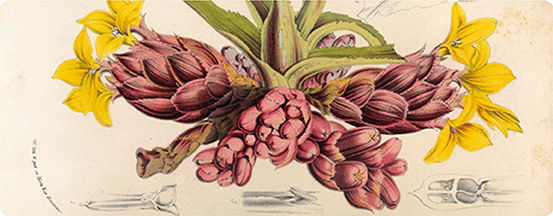
Agate presents its current favorite.
Within our collections, numerous illustrations or photographs deserve to be exhibited for their aesthetic quality or originality.Today, Disteganthus basi-lateralis, the pineapple plant, is a species of the bromeliaceae family, native to French Guiana and described in 1847.
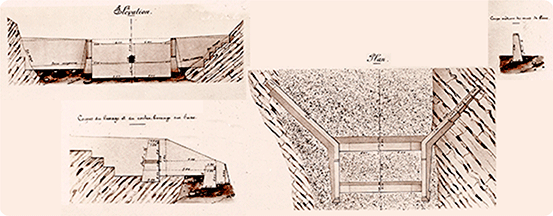
Since the 1860s, government departments have been working to secure natural and human habitats threatened by erosion and mountain torrents. Civil engineering and environmental engineering techniques are used. They range from masonry work to grass seeding to reforestation, and this is done from top to bottom.
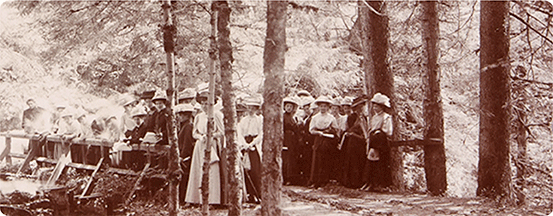
Agate presents its current favorite.
Within our collections, numerous illustrations or photographs deserve to be exhibited for their aesthetic quality or originality. Today, schoolteachers on a tour...

In 1745, Charles Bonnet describes the multiple experiments (carried out) under controlled conditions that enabled him to demonstrate the existence of asexual reproduction in aphids. Making the data available and describing the protocol to make it reproducible are still at the heart of the scientific approach today.
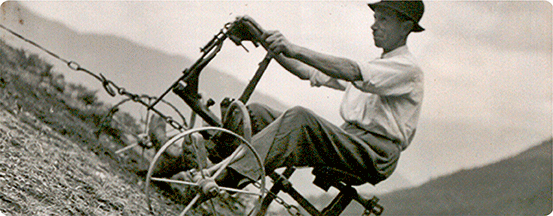
Agate presents its current favorite.
Within our collections, numerous illustrations or photographs deserve to be exhibited for their aesthetic quality or originality. Today, a "motorisation in the mountains" mission with ploughing on a armchair.
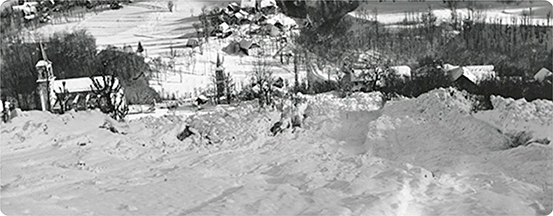
In the high mountains, the snow can last for months and the risk of avalanches is permanent. Despite this, mountain dwellers have always adapted to this environment. Grouped together in communities and leading a self-sufficient life, they have used their ingenuity to take advantage of the constraints and subtleties of the terrain by relying on existing natural protections.
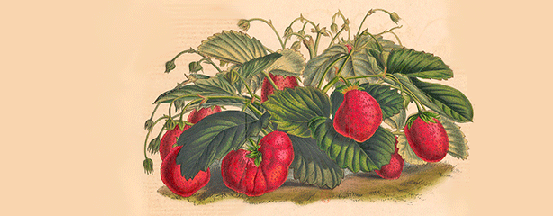
Agate presents its current favorite.
Within our collections, numerous illustrations or photographs deserve to be exhibited for their aesthetic quality or originality.Today, for the pleasure of gourmets, the enormous volume, abundance, and fragrant flavor of the mammoth strawberry.
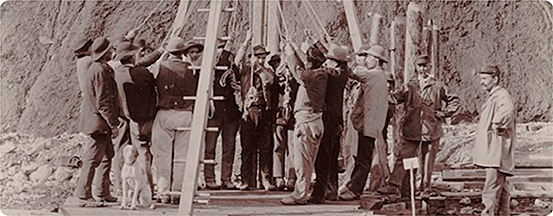
In the 19th century, the Riou-Bourdoux, the torrent that caused considerable damage in the lower Alps, was the subject of one of the most colossal torrential correction projects carried out in France by the Water and Forest Department.
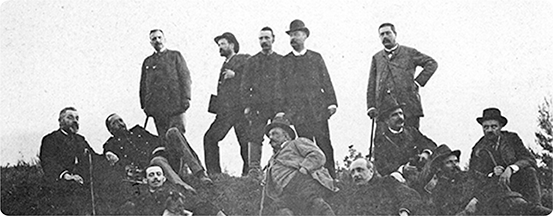
The history of the mountain land restoration (abbreviated RTM in French) services has been strongly marked by a few men with assertive characters and remarkable talents. Prosper Demontzey headed the reforestation department in the Lower Alps before overseeing RTM work throughout France. He wrote extensively to disseminate the principles of RTM and its techniques in the 19th century.
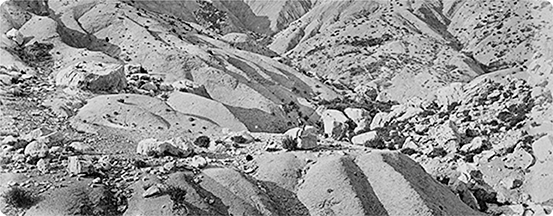
Agate presents its current favorite.
Within our collections, numerous illustrations or photographs deserve to be exhibited for their aesthetic quality or originality. Today, a little man in the black marls...
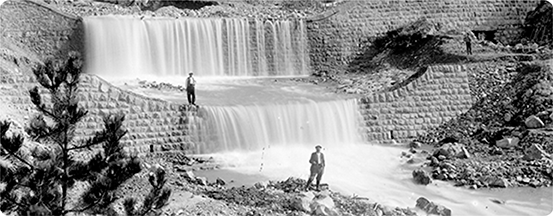
An experimental site and a technical, ecological and biological innovation: it is at this torrent in the Hautes Alpes that foresters from the mountain land restoration service undertake the first works in France aimed at curbing erosion and containing flooding.
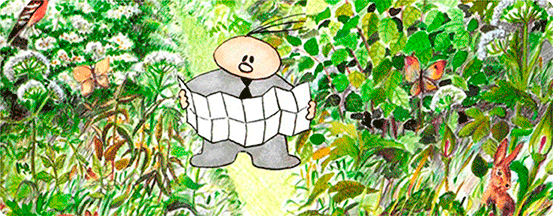
What do "The forest and its enemies", "Combine harvesters" and "High altitude lakes" have in common? Not much, apparently, apart from a common publisher, Cemagref, the French national centre of agricultural machinery, rural engineering, water and forestry, one of the forerunners of INRAE, whose original collection of publications is now available on Agate.
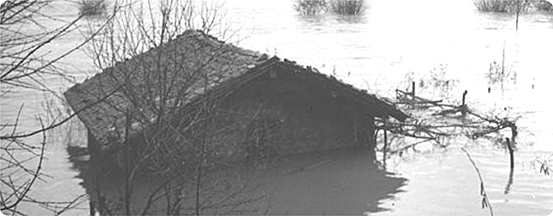
As soon as it came out in 1858, Maurice Champion's major work "Les inondations en France du VIe siècle à nos jours" (Floods in France from the 6th century to the present day) caught the interest of engineers and administrators. For the first time, it provided a detailed historical overview of flooding in the five major French river basins.
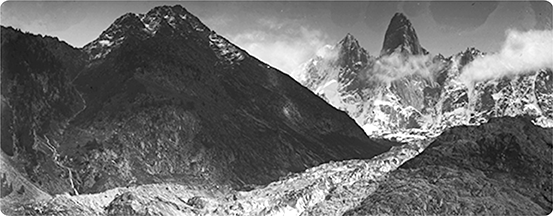
Three men from the Tairraz family, mountain guides from Chamonix, photographed the Mont Blanc glaciers every year from 1891 through to 1933. Their photographs provide invaluable data for tracking the evolution of the glaciers from the industrial revolution to the 20th century. Today, they are greatly threatened by global warming.

INRA's Bulletin was published from 1962 to 1978, as part of the National Institute for Agricultural Research's internal communication. Photography appeared in the magazine in 1965, showing the people, places and research of the institute, which was mandated to bring progress to agriculture.
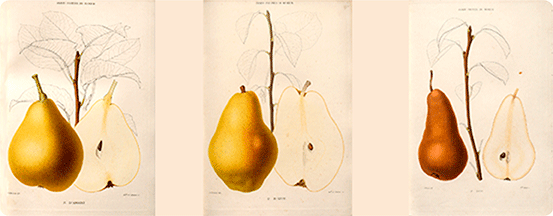
Which do you prefer? The Duchesse d'Angoulême or the Muddied? The Frangipane, the Rocket, the Swiss Breeches or the Forest Melt? The exotic or the unusual, the rustic or the aristocratic? The romantic, perhaps? Let us take a stroll through the Museum Orchard!
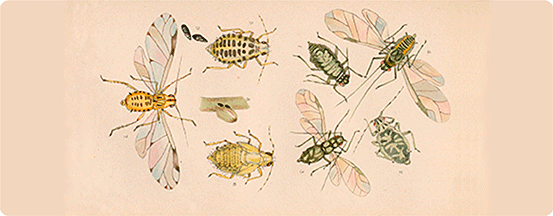
It is somewhat easy to dismiss aphids as annoying little pests that kill our houseplants and roses. There are, however, a number of books that have the power to broaden our horizons.
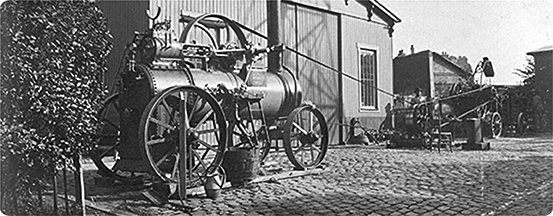
Bringing together two archives to revive one of our ancestors or: how can we revive the agricultural machinery testing station at the turn of the 20th century from old photos and an article from 1900?
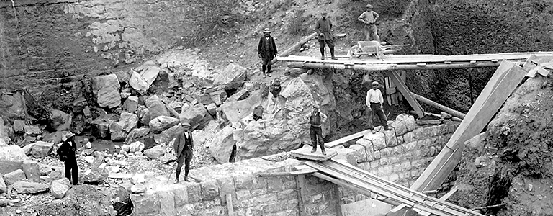
The photographs presented here are the result of a close collaboration between our services and those of the Archives Nationales, which preserve part of the historical photographic record of the mountain land restoration (RTM) service.
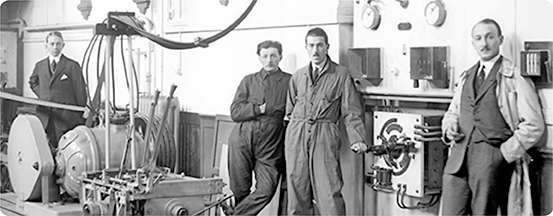
From January 1888 onwards, the agricultural machinery testing station carried out tests on agricultural equipment in order to provide farmers with reliable and verified information on the capabilities of existing equipment. Rigour and method are at the heart of this work.
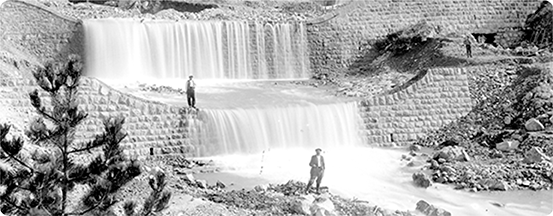
The mountain land restoration services (RTM in french) are responsible for using photography to monitor and measure the success or failure of their reforestation programmes, documented with pairs of photos taken seven, ten or fifteen years apart.